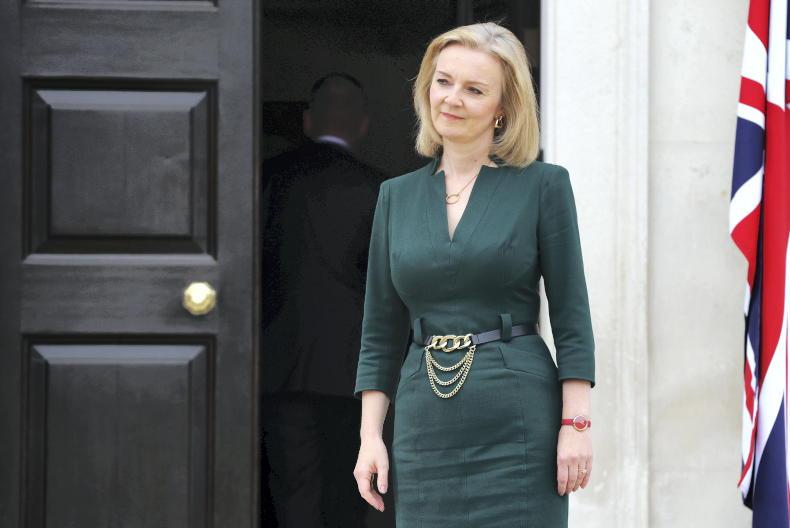The European Union is facing some pretty severe challenges this autumn. The biggest one is the high price and insufficient supply of natural gas.
This will have a disproportionately damaging effect on Germany and northern Italy, which are the manufacturing hubs of western Europe. Both countries have already been hit by the recession in China and the loss of export markets that has entailed.
Meanwhile, the EU is facing other threats that could also become existential.
One is from Poland, with politisation of the judiciary, the other is from the United Kingdom.
Brexit effect
Under the Northern Ireland Protocol and to avoid the need for customs controls on the Irish land border, Northern Ireland is to be allowed unfettered access to both the EU and the UK single markets.
But the UK says it does not want the European Court of Justice to be the final interpreter of EU rules, as applied in Northern Ireland, and it also wants Northern Ireland exempted from EU State aid and VAT rules.
Such a precedent for a territory within the EU Single Market, if set, would like the one the Poles are attempting, undermine the level playing field that is essential to the EU Single Market.
The British prime minister, Liz Truss, appears willing to provoke a major crisis with the EU on these matters. She seems to believe that, if she is strong, the EU will cave in. In a way, the problem is that UK has never taken the EU very seriously and takes a patronising attitude towards it. Trade conflict looks inevitable.

The British prime minister Liz Truss. \ Hollie Adams/Pool via Reuters
So, the EU should not wait until the UK has started to disapply the Protocol, to outline the trade sanctions it would impose on the UK. Once the Protocol disapplication bill reaches committee stage in the House of Lords, the European Commission should publish the full list of its proposed trade sanctions, to come the day the legislation is implemented. That advance notice would give time for cooler heads to assert themselves in London.
Meanwhile, I have no doubt that practical compromises can be reached on the implementation of the Protocol.
The UK will lose the court cases it is facing, for attempting to walk away from the Protocol
In July, the Europe Committee of the House of Lords published a very interesting report, with the evidence it received, on the Protocol.
It was balanced. It showed that the Protocol had adversely affected the retail sector in Northern Ireland but had advantaged manufacturing investment there. I drew two conclusions from reading the report and the evidence.
The UK will lose the court cases it is facing, for attempting to walk away from the Protocol.
Under the Vienna Law on Treaties, the UK would have to show it had been suffering from “coercion”, or “improper process”, when it signed and ratified the Protocol.
Given that the negotiations had been going on for more than a year, the UK will not be able to do that.
Solutions
The other conclusion I drew was that the best way to find solutions to practical problems thrown up by the Protocol would be for UK and EU officials jointly to meet the various sectors of the Northern Ireland economy.
Each have had separate meetings with the sectors, but that cumbersome format is not conducive to constructive thinking or to problem solving.
One of the advocates of Brexit, Michael Gove, suggested in February 2021 that there be a joint EU-UK business consultative group of officials, who would talk together in the one room, with all the relevant economic actors in Northern Ireland.
If Liz Truss wants to keep open the option of a negotiated agreement, as she says she does, she should activate this proposal of Michael Gove this week. Otherwise we are all heading for unnecessary trouble, when we have so many other problems to deal with.
The European Union is facing some pretty severe challenges this autumn. The biggest one is the high price and insufficient supply of natural gas.
This will have a disproportionately damaging effect on Germany and northern Italy, which are the manufacturing hubs of western Europe. Both countries have already been hit by the recession in China and the loss of export markets that has entailed.
Meanwhile, the EU is facing other threats that could also become existential.
One is from Poland, with politisation of the judiciary, the other is from the United Kingdom.
Brexit effect
Under the Northern Ireland Protocol and to avoid the need for customs controls on the Irish land border, Northern Ireland is to be allowed unfettered access to both the EU and the UK single markets.
But the UK says it does not want the European Court of Justice to be the final interpreter of EU rules, as applied in Northern Ireland, and it also wants Northern Ireland exempted from EU State aid and VAT rules.
Such a precedent for a territory within the EU Single Market, if set, would like the one the Poles are attempting, undermine the level playing field that is essential to the EU Single Market.
The British prime minister, Liz Truss, appears willing to provoke a major crisis with the EU on these matters. She seems to believe that, if she is strong, the EU will cave in. In a way, the problem is that UK has never taken the EU very seriously and takes a patronising attitude towards it. Trade conflict looks inevitable.

The British prime minister Liz Truss. \ Hollie Adams/Pool via Reuters
So, the EU should not wait until the UK has started to disapply the Protocol, to outline the trade sanctions it would impose on the UK. Once the Protocol disapplication bill reaches committee stage in the House of Lords, the European Commission should publish the full list of its proposed trade sanctions, to come the day the legislation is implemented. That advance notice would give time for cooler heads to assert themselves in London.
Meanwhile, I have no doubt that practical compromises can be reached on the implementation of the Protocol.
The UK will lose the court cases it is facing, for attempting to walk away from the Protocol
In July, the Europe Committee of the House of Lords published a very interesting report, with the evidence it received, on the Protocol.
It was balanced. It showed that the Protocol had adversely affected the retail sector in Northern Ireland but had advantaged manufacturing investment there. I drew two conclusions from reading the report and the evidence.
The UK will lose the court cases it is facing, for attempting to walk away from the Protocol.
Under the Vienna Law on Treaties, the UK would have to show it had been suffering from “coercion”, or “improper process”, when it signed and ratified the Protocol.
Given that the negotiations had been going on for more than a year, the UK will not be able to do that.
Solutions
The other conclusion I drew was that the best way to find solutions to practical problems thrown up by the Protocol would be for UK and EU officials jointly to meet the various sectors of the Northern Ireland economy.
Each have had separate meetings with the sectors, but that cumbersome format is not conducive to constructive thinking or to problem solving.
One of the advocates of Brexit, Michael Gove, suggested in February 2021 that there be a joint EU-UK business consultative group of officials, who would talk together in the one room, with all the relevant economic actors in Northern Ireland.
If Liz Truss wants to keep open the option of a negotiated agreement, as she says she does, she should activate this proposal of Michael Gove this week. Otherwise we are all heading for unnecessary trouble, when we have so many other problems to deal with.









SHARING OPTIONS